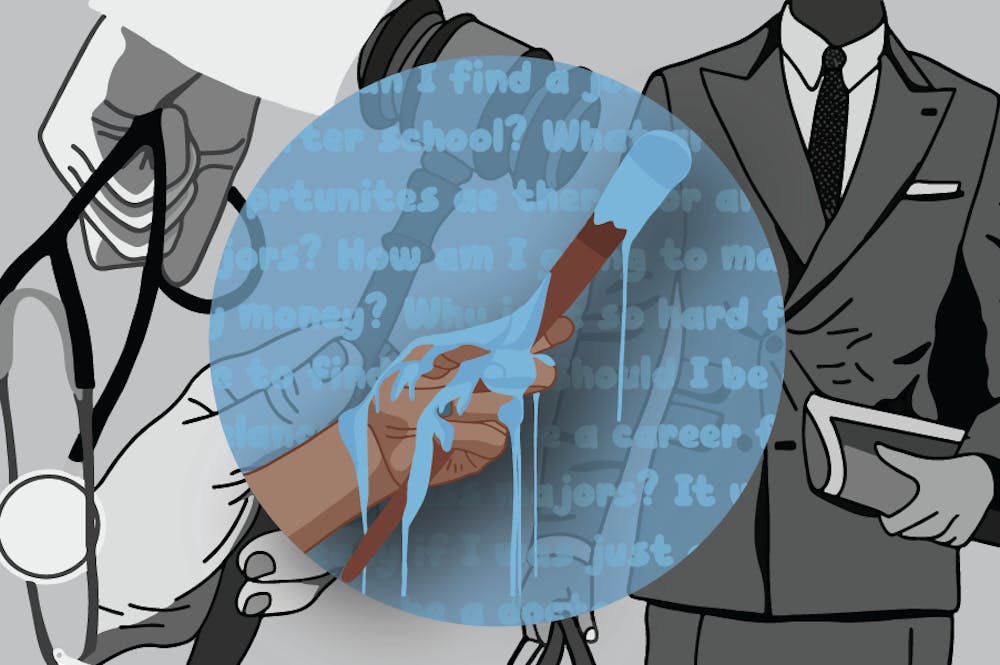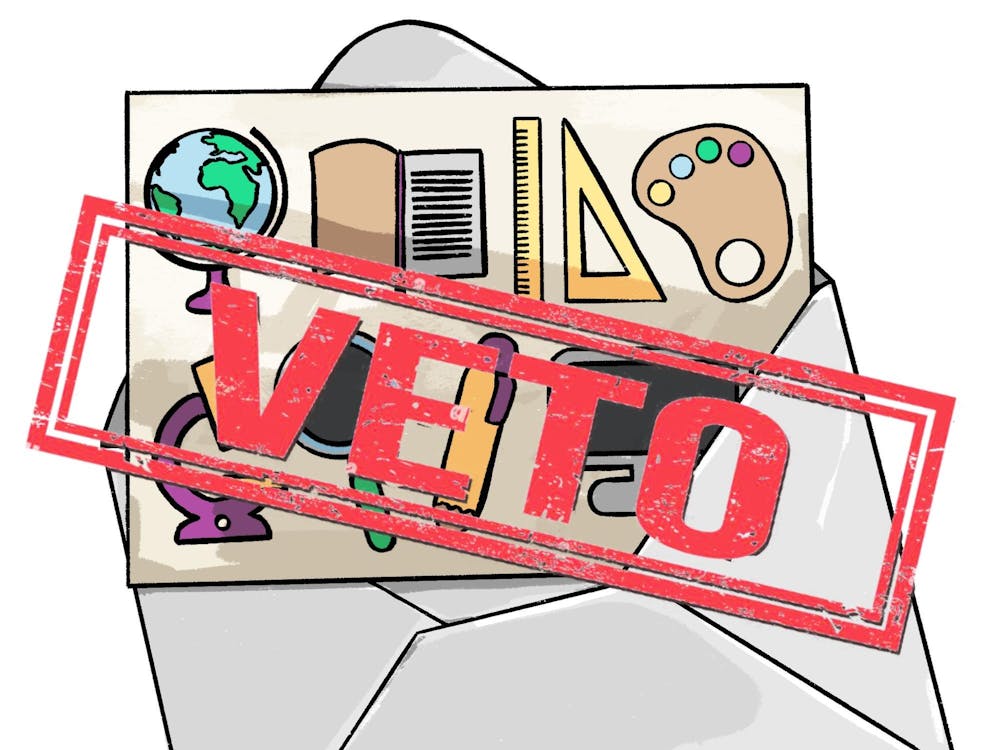One of the main reasons I decided to attend Miami University was the many career resources advertised to get students good jobs after graduation. What I didn’t realize was the hidden path to get there — not through the career center or career fair — but through my professors and alumni network.
I started as a creative writing major, then added a professional writing major and a digital marketing minor. My unique set of credentials confuses traditional business recruiters.
I often get these questions: What is professional writing? Do you want to be a novelist? Is that an English major?
These questions come from people outside university environments. I have to market myself through skills rather than my majors, making it more time-consuming to research what companies want out of their marketing and creative departments. I usually share my technical skills first, like proficiency in Microsoft Suite, Adobe Suite or certifications like Hootsuite and Canva.
My major isn’t as pretty or appealing on paper as the business school or STEM majors, but it gives me the flexible skills to make it in virtually every industry.
My path may not be straightforward or quick, but I’m willing to explore to find my dream career.
The state of this crazy, beautiful world makes people crave instantaneous success and gratification. I can easily get a job working minimum wage in retail or food service. I could also accept a corporate position with a shiny salary and long, grueling hours.
Life is too short. I will spend the time searching for what I will love doing.
This realization led me to Tim Lockridge, a professor of professional writing, who taught recent Miami graduates who have my same major or similar majors. I had an informal conversation with someone in my industry, and they not only gave me insights into how they dealt with career challenges but also how much they love their current position. I had no idea informal interviews could be so influential to make connections and earn referrals.
Not to mention, I still have plenty of time before the publishing industry starts searching for people to fill positions. So my advice is this: Connect with professors you trust, share what path you want to explore whether that’s an entry-level position or graduate school, and ask for as much advice as you can.
It doesn’t matter if they graduated in a different decade, what matters is the connections you can make with people in the industry at any given moment.
I’ve learned that this world is too unpredictable to expect only my skills to get me a job. My compassion, passion and drive for success is what will help me meet people. Those relationships will get me where I want to go, to explore and to experience what I can do with the skills I’ve gained.
Enjoy what you're reading?
Signup for our newsletter
Maybe it’s my unchecked optimism, but I think everyone at Miami who has a unique major, minor or skill set can make connections to jumpstart their career. Practice with friends, parents, strangers or anyone who will listen. Then take the risk and see what comes of it.
Walking up to people and networking may sometimes be scary, but it’ll be worth it in the long run. When you really think about it, how much do you have to lose?
Abbey Elizondo is a senior double-majoring in professional and creative writing, with a minor in digital marketing. She has been with The Student for a little more than two years and is a senior staff writer.




